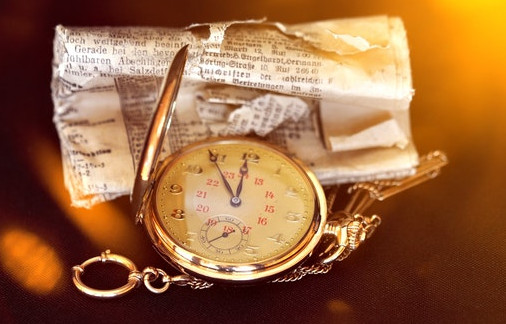Reviewing: History in an hour by Rupert Colley
The Motive:
“Calling it ‘Alternate History’ is what chumps do to avoid research”
This type of barb is typical Carl, and he’s missing the point. I only mentioned alternate history once in a moment of weakness. And only then because it sounded far grander than what I’d actually done, which was to bolt on little pieces of fiction onto real events. When he mutters something about “a chronological Frankenstein” and raises his flaming torch, I take off for my own safety.
It isn’t until much later, exhausted and cornered below the walls of the looming hilltop castle that I discover his torch was simply to give me light to read some books by. All in the hope that I “actually learn something for a change“. So that’s all right then.
The Evidence:
The story goes that when Rupert Colley first developed the history in an hour concept he described it as “history for busy people”. This is a great elevator pitch, and it succeeded in selling the concept to a major publisher, but perhaps it overly restricts the audience. Recorded history, after all, is a very big place, comprising countless lifetimes laid end to end. With only the proverbial three score years and ten (give or take), and a lot of sleeping, eating and living to do, aren’t we all busy people? Sure, true historians will want the deep-dive, but even they probably start with a paddle.
I own a number of these books, and many have contributed to a just-in-time approach to fleshing-out my fiction. Despite the series now being the responsibility of multiple authors, my needs seem to have coincided with Colley’s areas of expertise, and every book I’ve read has been his, including:
- Stalin
- The Russian Revolution
- The Siege of Leningrad
- Nazi Germany
- World War One
Without getting into potentially revealing detail about the role these historical periods played in my own stories, these are well-written books that deliver the historical goods. They provide a sense of time, place and political climate, along with unanticipated details that can provide credibility to your fiction. They also deliver on that promised timescale, although the deceptive amount of information on offer might lead to double-dipping. Most importantly, I would use this series again any time I needed my past to pass muster.
The Verdict:
Sad, but true: even an imagination worker will sometimes need an injection of what-actually-happened. If you like your knowledge packaged for rapid absorption, these books are the closest thing we have to the brain-spike from The Matrix. Whilst they won’t make you an expert, they might well save you from looking like a chump.



Recent Comments